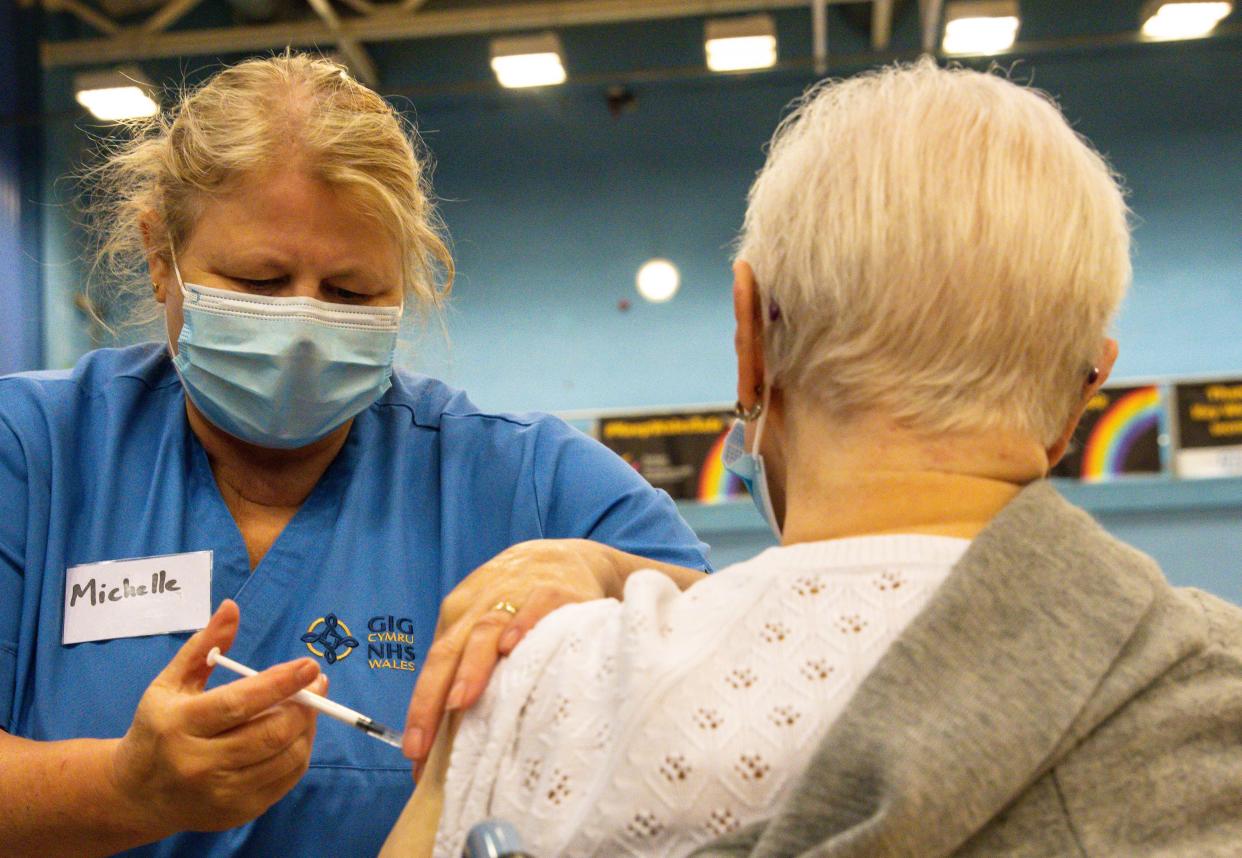Unvaccinated people '32 times more likely to die'

Unvaccinated people are "32 times more likely to die" than those fully- jabbed against Covid-19, new research suggests.
Mortality rates for coronavirus deaths were found to be “consistently lower” for those who had both doses compared with people who had one or no vaccinations, according to the Office for National Statistics (ONS).
It comes as prime minister Boris Johnson urged those eligible to get boosters when asked about possible coronavirus restrictions during the G20 summit in Rome on Sunday.
He said: “It’s a very important message. I think people don’t quite realise that the first two jabs do start to wane.
“How sad, how tragic it would be if people who had other complications, other compromises in their health, got seriously ill because they were overconfident about their level of immunity and didn’t get their booster when they needed it.”
Watch: Walk-in sites now offering coronavirus booster jabs across England without appointment
Boosters are now being given at walk-in vaccination sites in England with no appointment required as the NHS ramps up jabs ahead of winter.
From Monday, anyone eligible who had their second dose at least six months ago can turn up to hundreds of locations across the country to get their top-up.
NHS England said almost every person registered with a GP practice lives within 10 miles of a fixed vaccination site.
Health teams will also visit more than 800 schools across England this week to offer children aged 12-15 a coronavirus vaccine, as the government tries to improve uptake of the vaccine in younger people.
More than 600,000 young people have been vaccinated since the jabs rollout was extended to include 12 to 15-year-olds at the end of September.
The ONS research that suggested unvaccinated people were at 32 times greater risk of dying used age-standardised mortality rates.
These consider differences in age structure and population size, to allow comparisons between vaccination groups.
Among unvaccinated people in England, there were 849.7 deaths involving Covid-19 per 100,000 “person-years” between 2 January and 24 September.
By contrast, for people at least 21 days after a second dose of vaccine, the rate was just 26.2 per 100,000.

For those less than 21 days after their first dose of vaccine, the mortality rate was estimated at 192.4 per 100,000 person-years, while for those at least 21 days after a first jab the rate was lower, at 105.3.
“Person-years” are based on both the number of people and the amount of time spent in a particular vaccination group – for example, 100 people in a vaccination group for 0.5 years would equal 50 person-years.
Responding to the figures, Dr Peter English, former consultant in communicable disease control, said: “The important message here is that vaccination is highly effective against death from Covid-19.
"You are 32 times less likely to die if you have been fully vaccinated than if you are unvaccinated; and a single dose also provides some (although less than two doses) protection.”
As of Sunday, the UK has administered 45,697,856 second jabs and 7,925,851 boosters.
Watch: How the world could be better after Covid


